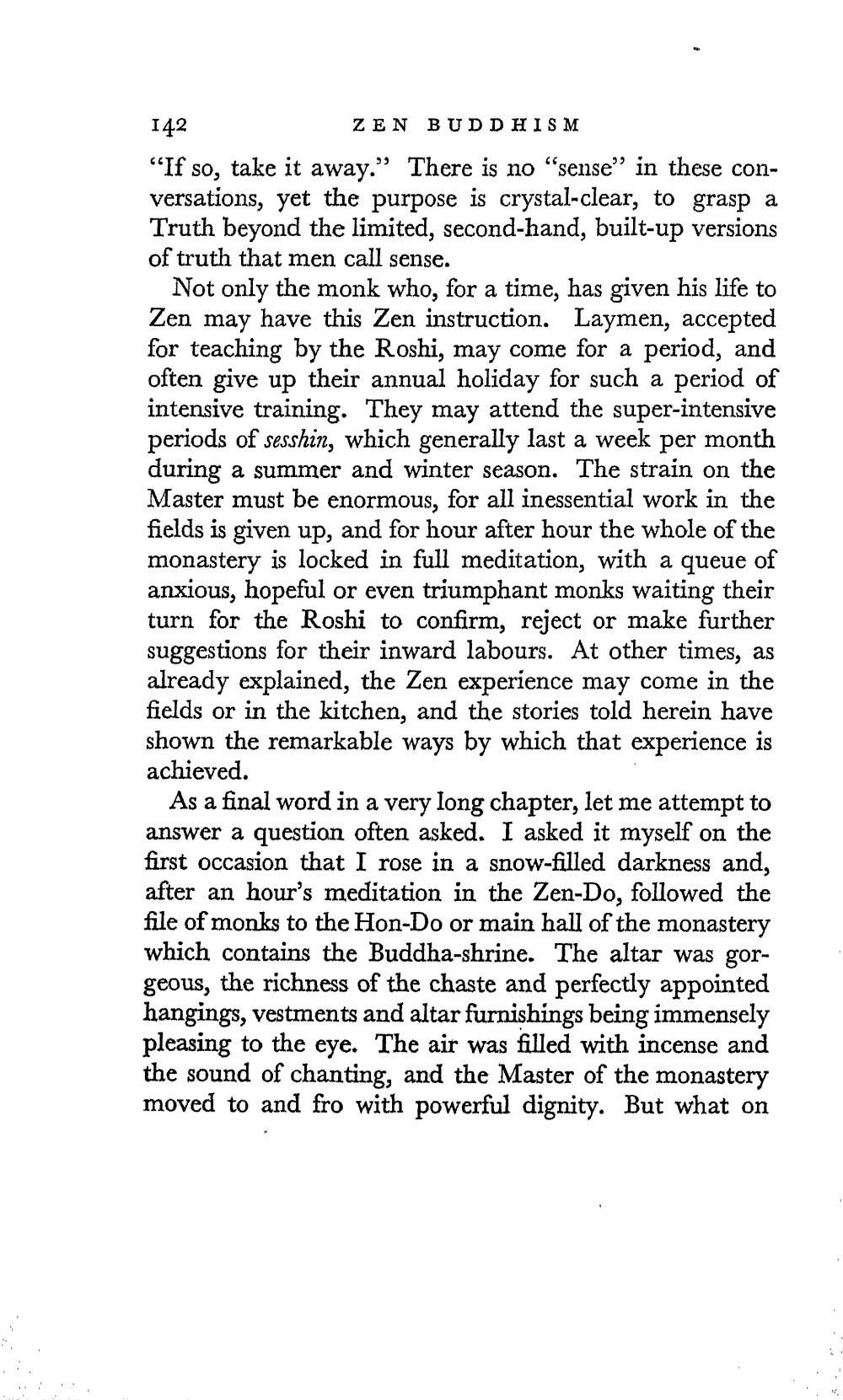________________
142
ZEN BUDDHISM “If so, take it away." There is no "sense" in these conversations, yet the purpose is crystal-clear, to grasp a Truth beyond the limited, second-hand, built-up versions of truth that men call sense.
Not only the monk who, for a time, has given his life to Zen may have this Zen instruction. Laymen, accepted for teaching by the Roshi, may come for a period, and often give up their annual holiday for such a period of intensive training. They may attend the super-intensive periods of sesshin, which generally last a week per month during a summer and winter season. The strain on the Master must be enormous, for all inessential work in the fields is given up, and for hour after hour the whole of the monastery is locked in full meditation, with a queue of anxious, hopeful or even triumphant monks waiting their turn for the Roshi to confirm, reject or make further suggestions for their inward labours. At other times, as already explained, the Zen experience may come in the fields or in the kitchen, and the stories told herein have shown the remarkable ways by which that experience is achieved.
As a final word in a very long chapter, let me attempt to answer a question often asked. I asked it myself on the first occasion that I rose in a snow-filled darkness and, after an hour's meditation in the Zen-Do, followed the file of monks to the Hon-Do or main hall of the monastery which contains the Buddha-shrine. The altar was gorgeous, the richness of the chaste and perfectly appointed hangings, vestments and altar furnishings being immensely pleasing to the eye. The air was filled with incense and the sound of chanting, and the Master of the monastery moved to and fro with powerful dignity. But what on




